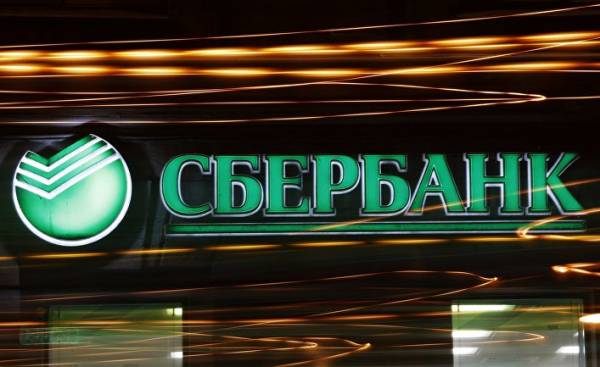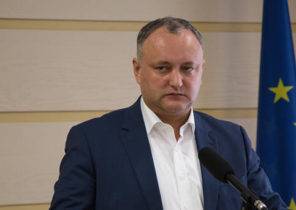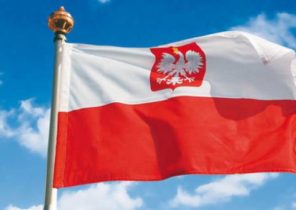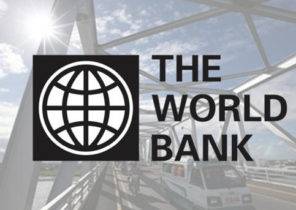
Konstantin vyshkovsky has shown that it can evade sanctions imposed against Russia, when he had three the sale of Eurobonds slightly more than a year. But the Director of public debt Department in the Finance Ministry may still face obstacles because the country wants to exchange the old bonds for four billion dollars for a new one.
The exchange, which Russia planned to spend “closer to fall”, may deter owners of debt obligations purchased prior to Western sanctions. Owners may be concerned that new obligations in conflict with limitations — vyshkovsky said in an interview. Although the country is not subject to the sanctions imposed over Russia’s role in the Ukrainian conflict, a new US Senate bill on wider restrictions against companies forced to order report about what the impact of possible limits on public debt or derivatives.
“The geopolitical factor is probably much more important for exchange than for regular accommodation,” said vyshkovsky. “If the General background is negative, we may abandon plans to hold a swap this year”.
The issue of borrowing, the world’s largest exporter of energy resources still managed to avoid tensions with the US, because in June, the country has completed the sale of external debt in the amount of three billion U.S. dollars, after two deals in the past year. But securities trading that preceded the sanctions are of big concern to investors because it threatens to jeopardize the owners of the bonds. Russia can afford to wait while trying to allocate the payment of the debt by issuing new liabilities.
According to Vyshkovsky, the threat of wider sanctions has prompted a number of investors, including one from the United States, to go after the markets were opened for the placement of bonds in June. Some European buyers also are unable to participate in the transaction, because the state Bank which it was organized, became the object of sanctions.
On the same day, when he completed the sale, the United States expanded its list of individuals and companies that are subject to sanctions for the annexation of the Crimea Peninsula in March 2014. The new law the Senate proposes to introduce additional restrictions on capital raising for banks and energy companies, and allows new sanctions against state enterprises in other industries. At the moment he remains in the House of representatives.
Due to the fact that the situation in June was aggravated due to the decline in oil prices and the depreciation of the ruble, “investors started to get nervous”, it forced the Finance Ministry to hasten the location of said vyshkovsky. He also added that the share of Russian buyers accounted for 15% of the total, although the demand from foreigners exceeded the amount of accommodation.
In the end, Russia sold two billion of 30-year debt with a yield rate of 5.25%, and one billion dollars of 10-year bonds with a yield of 4.25%. It had last issued 30-year bonds in September 2013.
The result was “successful, and was based mainly on value and distribution,” said vyshkovsky. “The fact that only a few investors to rethink their participation in the transaction against the backdrop of negative news, shows that the interest in Russian bonds is still very high.”
Yield of dollar bonds in September 2023 rose 16 basis points to 3.6% since 19 June, when Russia started the sale of Eurobonds. The yield and the premium on Eurobonds in September 2023 for US treasuries increased 10 basis points to 160.
However, the problems associated with the planned swap can be too complicated. The vyshkovsky calls it a “difficult” undertaking, because the Ministry of Finance prefers to spend it separately from the regular release.
The aim is to spread the repayment over a longer period of time, but to prevent ownership concentration in the hands of a few investors, he said. Although the amount for swap “significantly exceeds” four billion dollars, this exchange cannot be carried out during the year, vyshkovsky said.
“There are open questions about the exchange that we continue to work,” he said. Among them — the possibility that holders of the old bonds can require a substantial premium over bonds, “is issued at a time of increased sanctions against Russia”, which means that the operation “may not be meaningful”, he said.
According to Vyshkovsky, the authorities will examine market sentiment, before you promote the offer. “Sberbank”, the investment division of largest creditor of Russia and Gazprombank, the third largest in the country, probably, will manage the swap after the “VTB Capital” acted as the sole organizer of the recent sales of Eurobonds.
“We have no problem to conduct a transaction at any price and simply shift the debt burden to future periods,” said vyshkovsky.







